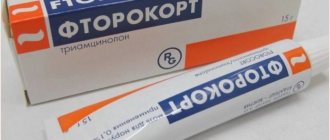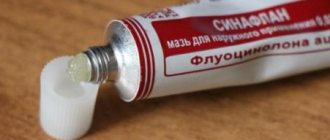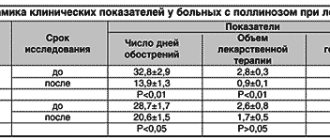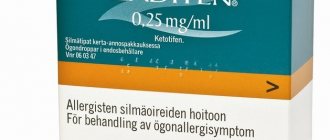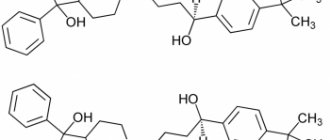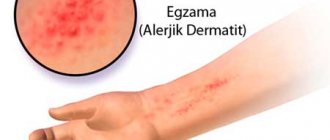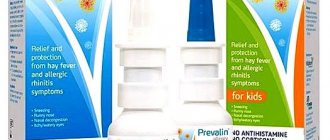Cetrilev is an antiallergic drug, a 3rd generation histamine receptor blocker.
Histamine is one of the leading mediators of the inflammatory response. Its effect is carried out through interaction with histamine receptors of types H1, H2, H3. If you block H1 receptors, this will inhibit the allergic reaction, H2 will inhibit the formation of gastric juice and reduce its acidity, changing cardiac parameters, H3 will affect the modulating effect in the brain.
3rd generation antihistamines, unlike their predecessors, are characterized by high selectivity. They have no toxic effect on the cardiovascular system and do not cross the blood-brain barrier. Thanks to these qualities, they do not have a negative side effect on the nervous system, are devoid of a calming, hypnotic effect, and have no side effect on the heart. Therefore, they can be used even by people whose work requires high concentration.
Indications for use
It is recommended to use Cetrilev for any allergic pathologies, it is especially relevant for the most common:
- allergic reaction to insect bites;
- hay fever;
- idiopathic urticaria;

- allergic rhinitis;
- Quincke's edema.
Instructions for use describe the features of its administration.
Special instructions for the use of the drug Cetrilev
Since the drug is primarily excreted by the kidneys, Cetrilev should be prescribed with caution to patients with renal pathology. In patients with renal failure (creatinine clearance ≤40 ml/min), the excretion of levocetirizine is reduced (up to 80% in patients on hemodialysis). In case of renal failure, the dose of the drug depends on creatinine clearance. If the creatinine clearance is ≥50–80 ml/min, take 1 tablet per day; if the creatinine clearance is 30–49 ml/min, take 1 tablet every other day; if the creatinine clearance is 30 ml/min, take 1 tablet every 3 days. If creatinine clearance is ≤10 ml/min, the drug is contraindicated. In case of liver failure, dose adjustment is not carried out. During pregnancy and breastfeeding . The safety of use during pregnancy has not been established, therefore the use of the drug is contraindicated. Levocetirizine passes into breast milk. If it is necessary to use the drug, breastfeeding should be discontinued. Children. The drug is not used in children under 6 years of age. The ability to influence the speed of reactions when driving vehicles or working with other mechanisms. Given the high likelihood of side effects (drowsiness, fatigue, asthenia), you should refrain from driving vehicles and operating other mechanisms.
Mechanism of action
The main component of the antihistamine Cetrilev is levocetirizine hydrochloride. In addition to blocking H1 receptors, it has a general inhibitory effect on allergic manifestations.
When consumed, it has a direct effect on the formation and development of allergic reactions - the drug stops those that have already developed, or prevents their occurrence when the body interacts with an allergen.
Its action is as follows:
- reversible competitive inhibition of H1 histamine receptors;
- inhibition of the release of inflammatory mediators;
- reduction of vascular permeability and relief of tissue swelling;
- slowing down the movement of eosinophils.
Oral tablets Cetrilev (CETRILEV)
Instructions for medical use of the drug
Description of pharmacological action
Levocetirizine is a histamine H1 receptor blocker, an enantiomer of cetrizine, and a competitive histamine antagonist. It affects the histamine-dependent stage of allergic reactions, reduces vascular permeability and eosinophil migration, limits the release of inflammatory mediators, thereby preventing the development and significantly facilitating the course of allergic reactions, eliminating exudation and itching.
Indications for use
Symptomatic treatment of seasonal allergic rhinitis (hay fever), as well as chronic allergic rhinitis, which is provoked by pets, dust, cold, etc.; chronic idiopathic urticaria.
Release form
tablets 5 mg; blister 10;
Pharmacodynamics
It affects the histamine-dependent stage of allergic reactions, reduces vascular permeability and eosinophil migration, limits the release of inflammatory mediators, thereby preventing the development and significantly facilitating the course of allergic reactions, eliminating exudation and itching. Levocetirizine has virtually no anticholinergic and antiserotonin effects. Does not penetrate the BBB. In therapeutic doses there is almost no sedative effect. After oral administration of a single dose, the effect of the drug develops after 15 minutes and lasts for 24 hours.
Pharmacokinetics
It is quickly absorbed when administered orally; simultaneous ingestion of food reduces the rate of absorption, but does not affect its completeness. Bioavailability of levocetirizine is 100%. Cmax is 207 ng/ml, time to reach Cmax is 0.9 hours, volume of distribution is 0.4 l/kg. Binding to blood plasma proteins is 90%. T½ is 7–10 hours. More than 85% of the drug is excreted by the kidneys. Passes into breast milk.
Use during pregnancy
The safety of use during pregnancy has not been established, therefore the use of the drug is contraindicated. Levocetirizine passes into breast milk. If it is necessary to use the drug, breastfeeding should be discontinued.
Contraindications for use
Hypersensitivity to levocetirizine or other components of the drug; severe renal failure (creatinine clearance >10 ml/min); During pregnancy and breastfeeding; children under 6 years of age.
Side effects
From the nervous system: headache, drowsiness, fatigue, weakness; From the cardiovascular system: palpitations; From the organ of vision: visual impairment; From the hepatobiliary system: hepatitis; From the immune system: hypersensitivity, including anaphylaxis, angioedema; From the respiratory system: shortness of breath; From the gastrointestinal tract: dry mouth, nausea; From the skin and subcutaneous tissues: itching, rash, urticaria; other: weight gain; abdominal pain; myalgia; liver test results may change.
Directions for use and doses
Apply orally without chewing, regardless of food intake, with a small amount of water. When used on an empty stomach, the effect of the drug develops faster. The recommended daily dose for adults and children over 6 years of age is 5 mg (1 tablet once a day). The course of treatment for hay fever (hay fever) is on average from 1 to 6 weeks. For chronic allergic diseases, the course of treatment can last up to 12 months.
Overdose
Symptoms: may be accompanied by signs of intoxication such as drowsiness; in children, an overdose may be accompanied by anxiety and increased irritability. Treatment: with the appearance of symptoms of overdose (especially in children), the drug should be stopped; gastric lavage is performed, activated carbon is used; therapy is symptomatic. There is no specific antidote, hemodialysis is ineffective.
Interactions with other drugs
Concomitant use of the drug with theophylline reduces the overall clearance of levocetirizine. In a study of the combined use of levocetirizine with ketoconazole and macrolides, no significant changes in cardiac activity were noted according to ECG data. Concomitant use of levocetirizine with drugs that suppress central nervous system function (tranquilizers, tricyclic antidepressants, MAO inhibitors) and alcohol may cause drowsiness.
Precautions for use
Given the high likelihood of side effects (drowsiness, fatigue, asthenia), you should refrain from driving vehicles and operating other mechanisms.
Special instructions for use
Since the drug is predominantly excreted by the kidneys, Cetrilev should be prescribed with caution to patients with renal pathology. In patients with renal failure (creatinine clearance In renal failure, the dose of the drug depends on creatinine clearance. With creatinine clearance ≥50–80 ml/min, take 1 tablet per day, with creatinine clearance 30–49 ml/min - 1 tablet every other day, with creatinine clearance 30 ml/min - 1 tablet 1 time in 3 days.With creatinine clearance. In case of liver failure, dose adjustment is not carried out.
Storage conditions
At a temperature not exceeding 30 °C.
Best before date
24 months
ATX classification:
R Respiratory system
R06 Antihistamines for systemic use
R06A Antihistamines for systemic use
R06AE Piperazine derivatives
R06AE08 Levocetirizine
Instructions
The antihistamine is available in two forms:
- syrup;
- tablet form (5 mg).
Tablet form
The use of tablets is not associated with food intake. However, its more pronounced effect is observed when used on an empty stomach. The tablets should be swallowed whole with water.
If there are no other doctor’s prescriptions, then the dosage for adults and children over 6 years old is 1 tablet (5 mg) per day. The duration of taking the tablets depends on the severity and degree of change in symptoms.
Syrup
The instructions for using the syrup are slightly different from those for the tablet form. In this form, the drug has a sweetish aroma and taste. It also contains the main substance. The remaining components are auxiliary and are presented in small quantities.

Cetrilev in syrup also has no connection with food intake.
Unless otherwise prescribed by the attending physician:
- children 2-6 years old: 2.5 ml twice a day;
- from 6 years and older: 5 ml per day;
- adults: once every 10 days.
Take for at least 1 month.
Contraindications and side effects of the syrup are similar to those of the tablet forms, but they are even less pronounced. The price of syrup is slightly higher than that of tablets.
Syrup is stored for 2 years, tablets for 3 years. The requirements for the storage mode are to exclude high storage temperatures - more than 30 degrees.
Reviews
Dmitry, 46 years old:
“It helped a lot with allergies to ragweed blooms - my sister suffers from this. This is the second year we’ve been accepting them, no complaints, and the price is reasonable.”
Anna, 31 years old:
“My son is allergic to dust - it’s terrible. We tried everything we could - only cetrilev helped. The effect is both quick and long-lasting—we drink the syrup as a course and there’s no pain.”
Sergey, 23 years old:
“I have a terrible allergy to mosquito bites. I used to suffer greatly - I love hiking and fishing, but I was always afraid of swelling and dying in nature. And here is cetrilev: I drank it, took it with me and enjoyed my vacation.”
POPULAR WITH READERS: Zodak for allergies, tablets, drops for children, instructions for use
Marina, 29 years old:
“I have been allergic for a long time, I suffer every summer - the reaction to poplar fluff is simply terrible. But for the third year now I have been saving myself with cetrilev - now I start taking it in advance and the flowering of poplars goes unnoticed for me.”
Ivan, 53 years old:
“Cheap, but it helps. I’m taking it for the first year and I like everything so far.”
Olga, 64 years old:
“I bought pills for my grandson - he didn’t believe that such an effect was inexpensive. Like."
Side effects
Side effects occur only with long-term use:
- mild dizziness;
- nausea;
- general weakness;

- dry mucous membranes in the mouth;
- mild, irregular shortness of breath;
If the above manifestations occur, you should consult your doctor to adjust the dosage or stop taking the drug.
Interactions with other medicinal drugs and other types of interactions
Acute administration with pseudoephedrine, cimetidine, ketoconazole, erythromycin, azithromycin, glipezide or diazepam does not cause clinically significant adverse interactions. Combined administration with theophylline (400 mg/dose) reduces the oral clearance of levocetirizine by 16% (theophylline kinetics do not change). When taken in therapeutic doses, there was no increase in calming symptoms. It is also important to avoid the wear and tear of sedatives during therapy.
Interaction
Cetrilev, like its analogues, in parallel with sedatives, can enhance the effect of the latter, and provoke a desire to sleep and a feeling of general fatigue. No harmful or undesirable interactions have been identified with other medications.
Analogs
Analogues of Cetrilev include the following drugs:
- Agistam, Zyrtec, Edem;
- Tavegil, Suprastin (the most common and best known).

Particularly guarded
Use caution in patients with chronic nitric deficiency (correction of the dosing regimen is required); for summer age patients (possibly decreased glomerular filtration rate). When the drug has dried, the drug should be taken away from alcohol. Taking the drug does not increase the level of absorption of the drug, but rather reduces the rate of its absorption.
When prescribing the drug, take into account the presence of factors in patients, blocking the cut (for example, spinal cord injuries, hyperplasia of the anterior pelvis), levocetirizine fragments increase the risk of cutting the cut.
Suspension during pregnancy or breastfeeding.
It is contraindicated to stagnate during pregnancy. The drug is visible in breast milk, so if you need to take the drug, you need to take it into your breast.
This is due to the fluidity of the reaction when using vehicles or robots with other mechanisms.
It should be avoided during treatment with vehicles or robots with other mechanisms during treatment with the drug.
Side effects
On the side of the nervous system: drowsiness, headache, fatigue, weakness, asthenia, seizures, paresthesia, confusion, restlessness, tremor, dysgeusia.
On the side of the psyche: sleep disturbance, wakefulness, hallucinations, depression, aggression, insomnia, suicidal thoughts.
On the side of the heart: stronger heartbeat, tachycardia.
On the side of the organs of the vision: damaged vision, blurred vision.
On the side of the organs of hearing and nervous system: vertigo.
On the side of the liver and skin paths: hepatitis.
On the side there is a problem with the genital system: dysuria, secrecy obstruction.
On the side of the immune system: hypersensitivity, including anaphylaxis, angioedema.
On the side of the respiratory system, the organs of the chest and the middle: the back.
On the side of the herbal system: diarrhea, vomiting, constipation, dry mouth, boredom, abdominal pain.
On the side of the skin and under the skin tissues: angioedema, persistent drug-induced rash, itching, visipanya, kropivyanka.
On the side of the musculoskeletal system, tissue and brushes: myalgia.
Follow-up results: increase in body weight, improvement of functional liver tests to normal levels.
Destroyed food and exchange of speeches: increased appetite.
Zagalni destruction: bump.
